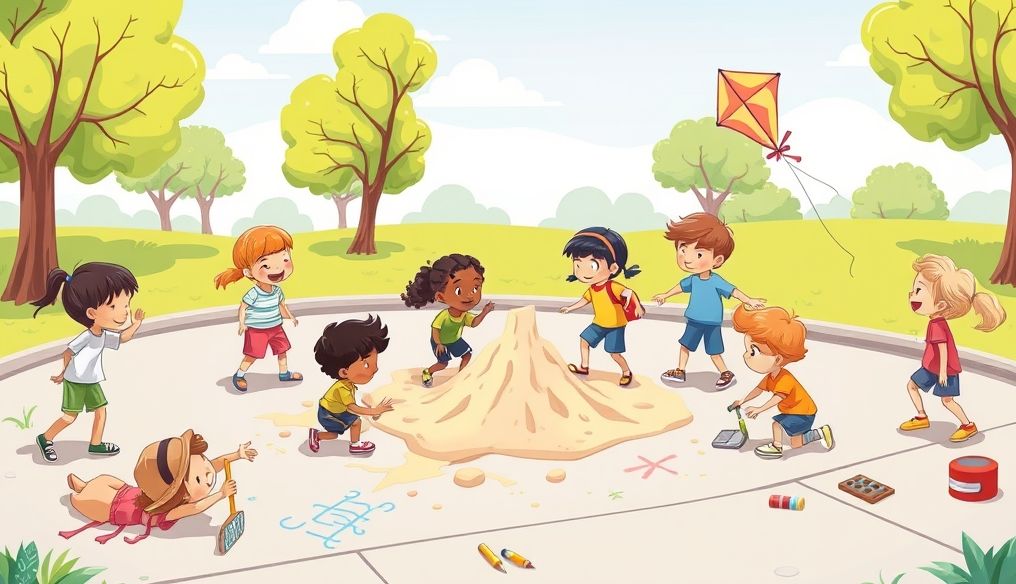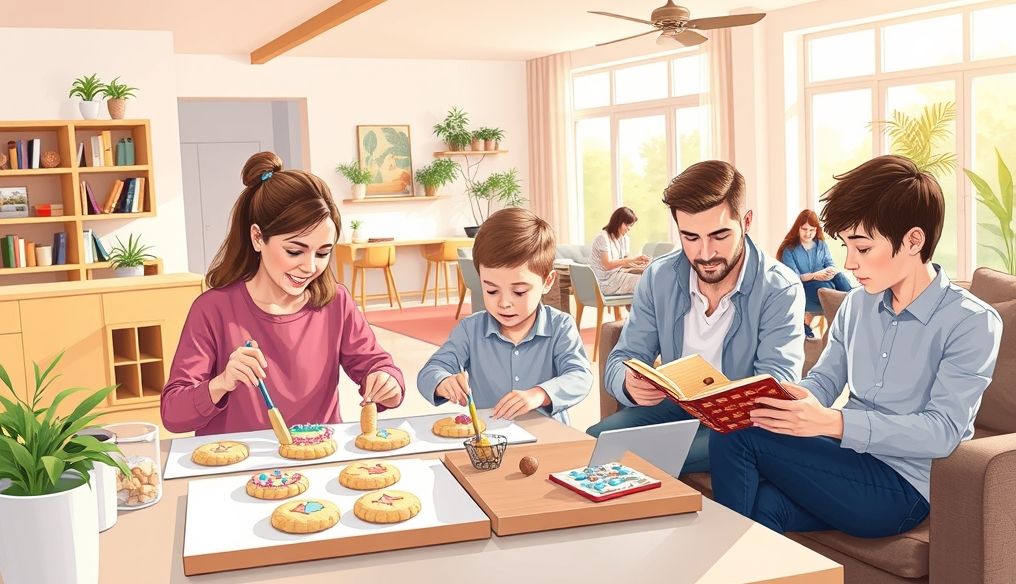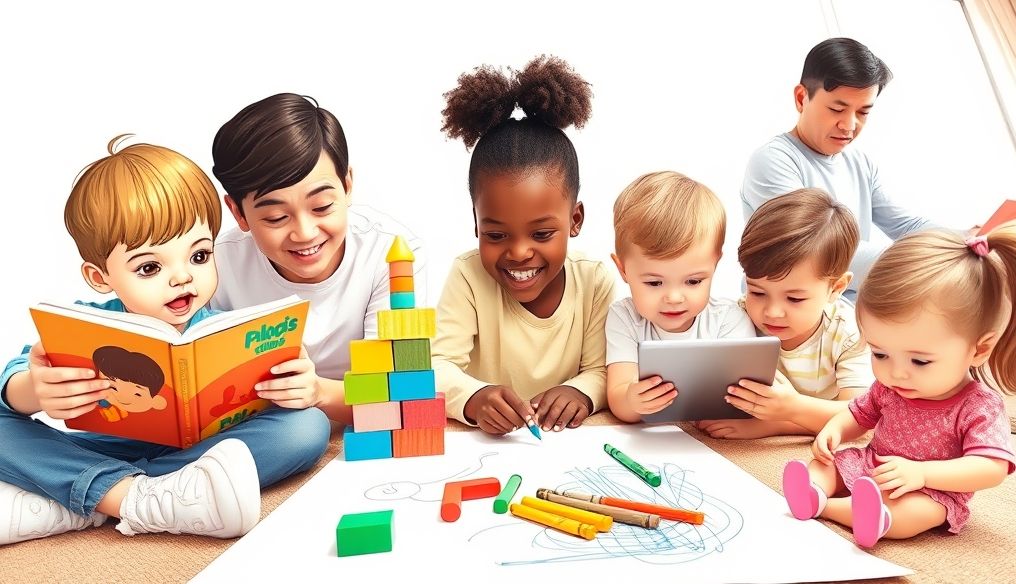Why is Play Important for a Child's Personality Development and Future?
Play is a fundamental activity in a child's life, often seen as just a means of entertainment and amusement. However, play holds immense benefits that go beyond simply passing the time. It plays a crucial role in the development of a child's personality and overall growth, contributing to building their social, emotional, cognitive, and motor skills.
Chapter 1: Play as a Tool for Social Development
Play provides children with opportunities to interact with others, whether they are peers or adults. Through this interaction, they learn how to communicate, share, cooperate, and resolve conflicts. These social skills are essential for building healthy and positive relationships in the future.
1.1. Learning to Share and Cooperate
When children play together, they learn how to share toys and resources, and how to work as a team to achieve a common goal. For example, when building a tower of blocks, they learn how to distribute tasks and cooperate to achieve the goal of building the tower.
1.2. Developing Communication Skills
Play requires children to communicate with each other to express their thoughts and feelings, and to understand the thoughts and feelings of others. They learn how to listen, speak clearly, and express themselves appropriately.
1.3. Conflict Resolution
Disagreements are normal in play, but through these disagreements, children learn how to resolve problems in a peaceful and constructive manner. They learn how to negotiate, compromise, and reach solutions that satisfy all parties.
Chapter 2: Play and Emotional Intelligence Development
Emotional intelligence is the ability to understand and manage one's own emotions and the emotions of others. Play helps children develop this intelligence by providing opportunities to express emotions, empathize with others, and deal with difficult situations.
2.1. Expressing Emotions
Play provides children with a safe environment to express their emotions, whether they are happiness, sadness, anger, or fear. Through imaginative play, they can represent situations that evoke strong emotions, and learn how to deal with these emotions in a healthy way.
2.2. Empathizing with Others
When children play together, they learn how to understand the feelings of others and empathize with them. For example, if they see a friend sad, they may try to comfort them or offer help.
2.3. Dealing with Difficult Situations
Play can help children deal with difficult situations in their lives. For example, they can use play to represent scary or stressful situations, and learn how to overcome their fears.
Chapter 3: Play and Enhancing Cognitive Growth
Play is not just a physical or social activity, but also an important cognitive activity. Through play, children learn to solve problems, think creatively, and develop their language skills.
3.1. Problem Solving
Many games require children to solve problems, whether simple problems such as assembling a puzzle, or more complex problems such as building a complex structure. Through these activities, they learn how to think logically, try different solutions, and learn from their mistakes.
3.2. Creative Thinking
Imaginative play encourages children to think creatively and develop their imagination. They can create stories, characters, and imaginary worlds, and use their imagination to solve problems in new and innovative ways.
3.3. Developing Language Skills
Play provides children with opportunities to use language and communicate with others. They learn new words, practice constructing sentences, and learn how to express their ideas clearly.
Chapter 4: Play and Developing Motor Skills
Physical play, such as running, jumping, and climbing, helps children develop their fine and gross motor skills. These skills are essential for performing many daily activities, such as writing, drawing, and dressing.
4.1. Gross Motor Skills
Games that require large movements, such as running, jumping, and climbing, help children develop their gross motor skills. These skills are essential for participating in sports and maintaining physical fitness.
4.2. Fine Motor Skills
Games that require the use of hands and fingers, such as assembling puzzles, drawing, and coloring, help children develop their fine motor skills. These skills are essential for writing, drawing, and performing many daily activities.
Chapter 5: Types of Play and Their Importance
There are different types of play, and each type has its own benefits. Among these types are:
- Free Play: Allows children to explore their environment and experience new things without restrictions.
- Imaginative Play: Encourages children to use their imagination and create stories and characters.
- Organized Play: Includes specific rules and instructions, such as sports and board games.
- Sensory Play: Involves using the senses to explore the world around them, such as playing with sand and water.
Chapter 6: The Role of Parents in Encouraging Play
Parents play a crucial role in encouraging play and providing appropriate opportunities for children to play. They can do this by:
- Providing a safe and stimulating environment for play.
- Providing toys and materials appropriate for their ages and interests.
- Playing with their children and spending quality time with them.
- Encouraging them to play with their peers.
- Not interfering with their play unless necessary.
Chapter 7: The Impact of Lack of Play on Child Development
Lack of play can have a negative impact on child development. It may lead to:
- Delays in social, emotional, cognitive, and motor development.
- Difficulties in communicating and interacting with others.
- Behavioral problems.
- Increased risk of depression and anxiety.
Chapter 8: Play and Technology: Achieving Balance
In the modern era, technology has become an integral part of children's lives. It is important to strike a balance between traditional play and technological play. Electronic games can have benefits, such as developing problem-solving and strategic thinking skills, but they should be used in moderation and under parental supervision.
Chapter 9: Play as a Basic Right of the Child
The United Nations considers play a basic right of the child. All children should have opportunities to play and enjoy their childhood. Play is not just a means of entertainment, but a vital tool for their development and growth.
Chapter 10: Conclusion: Investing in a Child's Future Through Play
Play is an investment in a child's future. By providing appropriate opportunities for children to play, we can help them grow into healthy, happy, and productive individuals in society. We must recognize the importance of play and support and encourage it in our children's lives.




